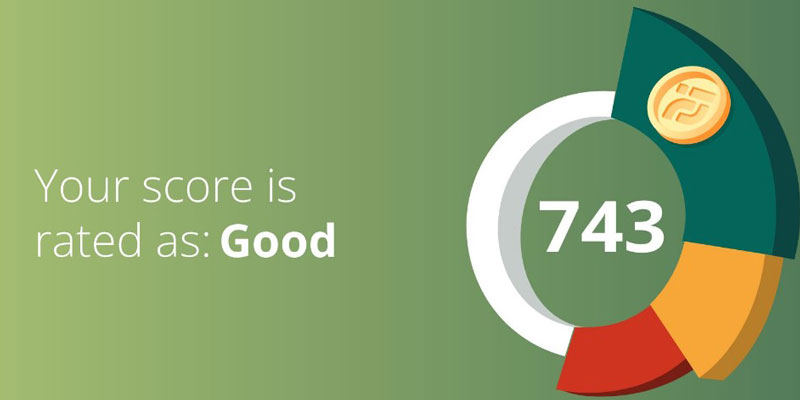How to Leverage a Travel Tax Credit: A Comprehensive Guide
Dec 21, 2023 By Triston Martin
Navigating the world of tax credits can seem like an overwhelming task. Yet, for avid travelers, one particular opportunity presents a unique advantage: the travel tax credit. This form of tax incentive serves as a boon for those who spend a significant portion of their income on travel, as it offers the potential to recoup some of these expenditures. This comprehensive guide aims to demystify the process of leveraging a travel tax credit, providing you with key insights and strategies to maximize your savings. Whether you're a frequent flyer or an occasional adventurer, understanding how to make the most of this particular tax credit could lead to substantial financial benefits.
Understanding the Travel Tax Credit

Before delving into the specifics of leveraging a travel tax credit, it's crucial to have a solid understanding of what this incentive entails. Put simply, a travel tax credit is a form of tax relief provided by governments to promote travel and tourism within their countries. This can take various forms, such as deductions or credits on eligible expenses related to travel. In general, these tax incentives are intended to encourage individuals and businesses to spend money on travel, which in turn can boost local economies and generate revenue for the government.
The eligibility criteria for a travel tax credit may vary from country to country. Some governments offer this incentive exclusively for domestic travel, while others extend it to international trips as well. In some cases, there may be certain restrictions on the types of expenses that can be claimed for the tax credit, such as transportation, accommodation, meals, and entertainment. It's essential to research and understand the specific rules and regulations in your country or state before attempting to leverage a travel tax credit.
How to Qualify for the Travel Tax Credit?

The process of qualifying for a travel tax credit can vary depending on your location and the specific rules in place. In general, there are some key criteria that you must meet in order to be eligible for this incentive.
- Proof of Travel Expenses: The most crucial aspect of claiming a travel tax credit is being able to provide proof of your travel expenses. This can include receipts, invoices, and other relevant documentation that clearly outlines the amount you have spent on eligible travel expenses.
- Minimum Threshold: Some governments may require travelers to meet a minimum spending threshold before being eligible for the tax credit. This means that you must spend a certain amount of money on travel within a specified time frame in order to qualify.
- Eligible Expenses: There may be restrictions on the types of expenses that can be claimed for the travel tax credit. It's essential to understand which expenses are eligible and which are not in order to accurately calculate your potential savings.
- Timeframe: In most cases, there will be a specific timeframe within which you must claim the travel tax credit. This could be a calendar year
Tips to meet eligibility requirements
- Keep detailed records of your travel expenses, including receipts and invoices.
- Plan ahead and make sure you meet any minimum spending thresholds before the deadline.
- Familiarize yourself with the types of expenses that are eligible for the tax credit in your country or state.
- Stay up to date on any changes or updates to the eligibility criteria for the travel tax credit.
How to Apply for the Travel Tax Credit?
Once you have determined that you are eligible for the travel tax credit, the next step is to apply for it. The process of applying can vary depending on your location and the specific regulations in place. Here are some general steps to follow when applying for a travel tax credit:
- Gather Documentation: As mentioned earlier, having proof of your travel expenses is crucial in applying for the tax credit. Make sure you have all necessary receipts and invoices organized and ready to be submitted.
- Fill out Relevant Forms: Depending on your location, there may be specific forms that need to be filled out in order to claim the travel tax credit. Make sure you have the correct forms and fill them out accurately.
- Submit Application within Timeframe: Be sure to submit your application within the designated timeframe in order to avoid missing out on potential savings.
- Follow Up: If there are any discrepancies or issues with your application, be prepared to follow up and provide additional documentation if needed.
Necessary documents for application
- Proof of travel expenses (e.g. receipts, invoices)
- Completed application form
- Any additional documentation required by your government or state
Strategies to Maximize Your Savings
Once you have successfully qualified for the travel tax credit, there are several strategies you can employ to maximize your savings. These include:
- Plan Your Travel Around Tax Incentives: Research and take advantage of any specific time periods or destinations that offer additional tax incentives for travelers. This could potentially increase your savings even further.
- Use a Travel Rewards Credit Card: Consider using a travel rewards credit card to earn points or cash back on your travel expenses, which can then be used to offset the cost of future trips.
- Track Your Expenses Year-Round: By keeping track of your travel expenses throughout the year, you can better plan and strategize to meet any minimum spending thresholds for the next tax credit cycle.
Common Mistakes to Avoid
- Failing to Qualify: Make sure you meet all the eligibility criteria and have the necessary documentation before applying for a travel tax credit.
- Missing Deadlines: Be aware of specific timeframes for claiming the tax credit and make sure to submit your application on time.
- Not Properly Tracking Expenses: Keeping detailed records of your travel expenses is crucial in accurately claiming the tax credit. Failing to do so could result in missing out on potential savings.
Conclusion
The travel tax credit can be a valuable incentive for individuals and businesses looking to save money on their travel expenses. By understanding the eligibility criteria, properly documenting your expenses, and following the application process, you can potentially save a significant amount of money on your next trip. Be sure to stay informed about any changes or updates to the regulations in order to take full advantage of this beneficial tax credit.





